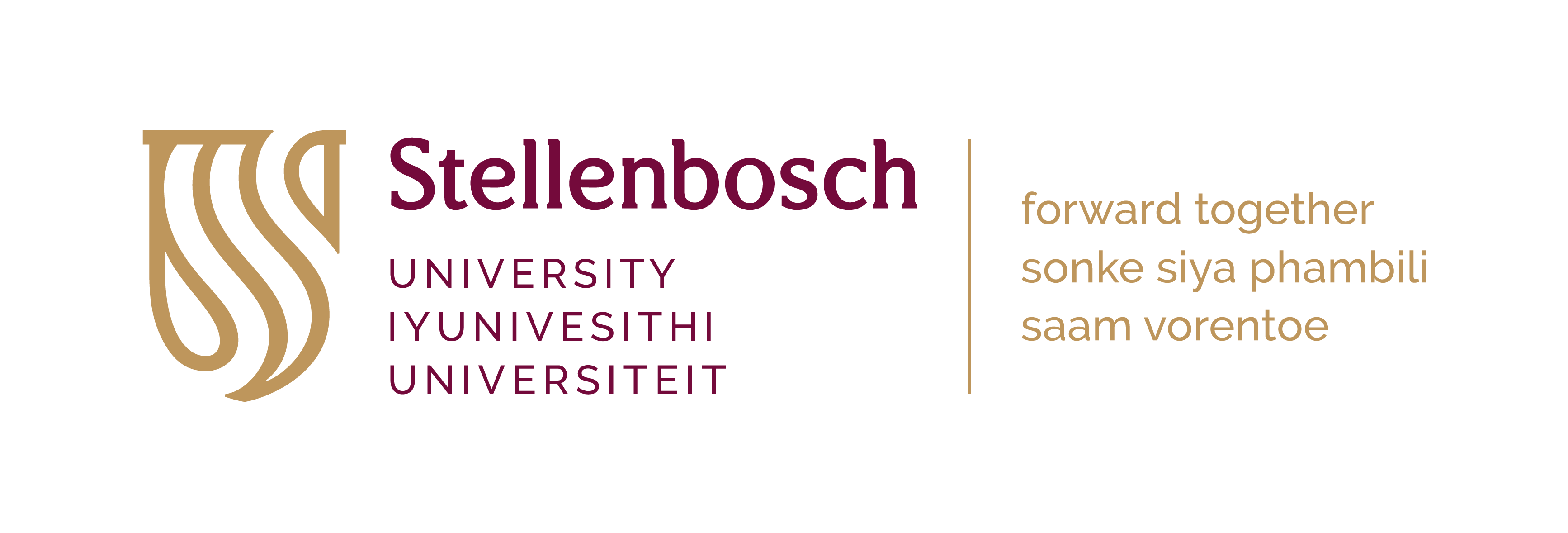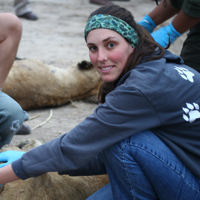Meet Dr Tanya Kerr, a postdoctoral fellow within the Animal TB Research Group at Stellenbosch University’s Division of Molecular Biology and Human Genetics, Faculty of Medicine and Health Sciences.
In celebration of Youth Month 2020, the Division of Molecular Biology and Human Genetics is paying tribute to young researchers within our institute. We share heart-warming stories of our students whose lives give us great hope for the future of South Africa. We thank these students for volunteering to tell us a little about themselves and their research.
Tell us briefly about your background?
I grew up on a small farm in Wellington, Western Cape, South Africa with my parents and two younger brothers. Our family has always had a love for animals, and I am sure this is what inspired me to pursue a research career which involves wildlife conservation.
Why did you choose your field of study – what or who inspired you? Is this what you envisioned for yourself growing up?
Growing up I never planned on becoming a researcher. I had always planned on becoming a veterinarian. I guess you could say that I stumbled into my current field of research (Wildlife Infectious Diseases), based on my passion for animals, and my interested in research which has practical implications for wildlife conservation and animal health. My current research allows me to combine my background in conservation, my interest in wildlife infectious diseases, and my desire to focus on research projects with veterinary and conservation implications.
What is your research focus on?
My primary research focus has always been Wildlife Infectious Diseases. My PhD investigated the molecular epidemiology and the evolution of Feline Immunodeficiency Virus (FIV) in African lions and leopards in the Kruger National Park. My current research focuses include: i) developing tools with diagnostic potential for tuberculosis (TB) detection in wildlife species including large felids (African lion, leopard and cheetah), African elephants, hippopotamus and various antelope and primate species, ii) using these diagnostic tools to evaluate the epidemiology of animal TB (prevalence, molecular epidemiology, transmission) in these various wildlife species, iii) to detect and characterise Feline Immunodeficiency Virus (FIV) in cheetah and iv) to detect and characterise Elephant Endotheliotropic Herpesvirus (EEHV) in free-ranging African elephants.
How can your research help to improve Africa and/or the lives of its people?
My research which focuses on wildlife infectious diseases, makes up one small part of the one health tripod. One Health is “the collaborative efforts of multiple disciplines working locally, nationally, and globally, to attain optimal health for people, animals and our environment”. Through my research, I hope to make a little but important contribution to the broader field of one health.
What obstacles did you have to overcome to get where you are today?
Not being accepted into veterinary school on multiple occasions was very disheartening. However, these setbacks set me on my path to where I am today and for that, I am very grateful.
If you could invite any three researchers (alive or dead; local or international) to a dinner party, who would you pick and why?
Prof Michele Miller my current postdoctoral host. This might seem strange since I already know Michele however in the short time, I have worked with her I am inspired by her work ethic, dedication to her students, and passion for her research. I am in awe of what she has achieved as a female researcher and veterinarian and never get tired of listening to her research anecdotes and veterinary adventures.
What is your favourite quote/saying?
“Success consists of going from failure to failure without loss of enthusiasm” – Winston Churchill
Any advice for young people who are considering a career in STEM?
Try not to let rejection get you down. You need to have a thick skin to be in research. Stay enthusiastic about your research and just keep trying. Your time in the spotlight will come.
What do you hope to achieve in the future?
I would really like to cement my place in the field of wildlife infectious disease and disease diagnosis, thereby supporting conservation efforts and disease control in threatened and vulnerable wildlife species.

